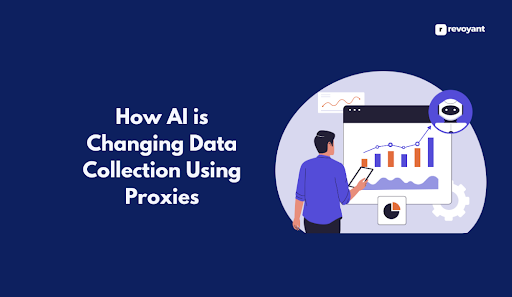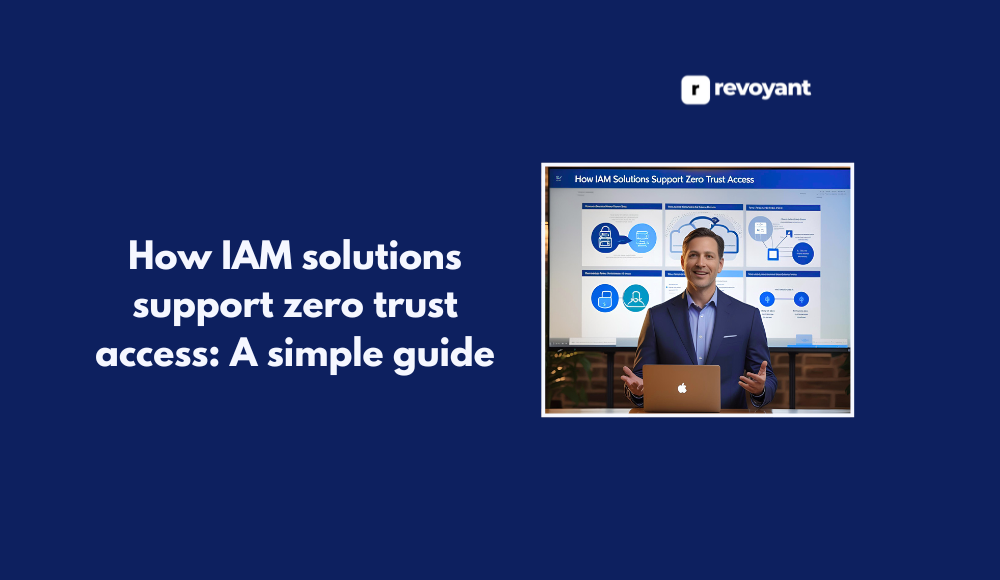Feeling lost about how to make money as Artificial Intelligence changes everything? It can be scary because AI is already replacing whole teams in some jobs. After doing lots of research and growing software companies, I found where real wealth can be made with AI.
This post will give you simple steps for picking the best industries, smart business models, and the right clients for your future success. Keep reading to start building your own path to AI wealth!
Key Takeaways
- AI is changing jobs and how we find information. It replaces teams, makes search smarter, and changes online money-making.
- To make money with AI, pick stable industries like supply chain or legal services. Focus on proven methods over trends for success.
- High-profit AI business models include services, consulting, and software. They have big margins because they use smart tech to save time and costs.
- Selling AI solutions to rich clients in simple industries works well. They pay more for tools that improve life or work fast.
- Real-world uses of AI help in law, managing businesses, and building communities. Using smart technology saves time and gets better results.
The AI Revolution’s Impact on Wealth Generation
Artificial Intelligence is changing how people make money, and fast. New tools mean a single person can do what once needed a full team, opening doors to huge wealth for those who act quickly.
AI agents replacing teams
AI agents now replace whole work teams. I see companies use smart robots and software to handle jobs once done by ten or more people. Automation increases speed and cuts costs, which attracts business owners fast.
For example, one AI agent can do admin work like answering emails, managing schedules, and data entry in seconds. Before 2023, humans handled these tasks as a group; after technology upgrades in 2024, machines take over without breaks or downtime.
This shift causes workforce displacement across many fields. Labor force transformation happens quickly; traditional roles vanish while digital transformation spreads wide. Jobs in customer support, HR, and supply chain management face big changes due to new AI tools released every month.
Businesses focus on workforce optimization using fewer people but smarter systems each year since 2022. Some people lose jobs, some get re-trained for tech-heavy roles—all because of the rise of advanced AI teams that never sleep or call out sick.
Decline of traditional Google search
Search technology keeps changing fast. Traditional Google search is not the only way people find information now. AI algorithms work smarter and faster, helping users get clear answers without scrolling through many pages.
In 2024 and moving into 2025, I see more people asking AI-driven tools for help first, like ChatGPT or Gemini, instead of using a basic Google search.
AI can pull facts from lots of sources at once. It gives instant results that feel personal. This shift disrupts old ways of making money online too. Digital wealth creation used to rely on ranking high in Google search results; now new AI innovations set the pace for business success and growth in tech fields that use advanced artificial intelligence to change how we discover information every day.
Choosing the Right Industry for Financial Success
Making money with AI is about picking the right field, not just chasing shiny new trends. I watch what actually works and study where real demand stays strong.
Importance of focusing on “what’s true, not new”
I stick to what’s true, not new. I use time-tested principles and proven strategies because trends fade fast. For example, supply chain and home services still rely on reliable methods that work year after year.
Trusted techniques like sound fundamentals and well-established concepts help me avoid risky bets.
Many chase the next big thing in tech, but I see better results using tried-and-true approaches. Warren Buffett built wealth by following traditional wisdom, not chasing fads. By focusing on established practices, I lower my risk and grow steady success with AI in 2025 as others get distracted by hype.
Avoiding being too early or too late in technology adoption
I see that being too early in technology adoption often means high costs, few customers, and lots of risk. Many startups from 2017 tried AI before the market or tools were ready; most failed as a result.
Being too late brings its own problems. Companies that waited missed key chances for business success, lost their edge, and had to play catch-up.
For real wealth in 2025’s AI revolution, I watch strategic timing closely. I target industries where digital transformation is picking up speed but has not peaked yet—like legal services or supply chain management.
This way, my tech integration helps me stand out fast while avoiding both wasted effort and racing against giants. Timing matters more than newness when choosing what industry to enter with AI solutions.
Five Suggested Industries for AI Investment
Some industries stand out for their strong growth with Artificial Intelligence. I see huge chances to start or grow a business in these areas, and you might spot your next big idea here too.
Supply Chain
Supply chain tasks have changed a lot due to AI. I see warehouses now use robots for inventory management and tracking. Predictive analytics help me plan demand, so less money is wasted on too much stock.
AI tools give better demand forecasting and alert me about low supplies fast.
Transportation management is smarter with AI route optimization. Delivery scheduling can cut down fuel costs and speed up shipping times. In 2023, big companies saved millions by using freight management software powered by machine learning.
This year, supply chain optimization means more profit and fewer errors for any business investing in smart tech tools like these.
Administrative Work
After seeing how AI can change supply chain tasks, I now focus on administrative work. Many offices spend hours each week on billing, scheduling, and file management. AI steps in to save time and boost productivity here.
I use automation for data processing and workflow management every day; these tools sort emails, schedule meetings, and process bills faster than any team member could.
My own business saw big gains with timesaving technology for organizational tools. AI makes it easy to update client files or set reminders. Task optimization keeps small errors from piling up by flagging missed deadlines or lost documents right away.
With process improvement through smart software, even a small company feels like a big operation—leaner with better business intelligence at my fingertips since 2023.
Home Services
AI is changing home services fast. I see smart HVAC systems that use automation to save energy and cut costs. Companies already use AI for predictive maintenance, making home repairs cheaper and faster.
In 2023, plumbing services started using data analysis tools to spot issues before they turn into big problems.
Roofing businesses now use artificial intelligence for inspections too, which helps them find damage early and keep customers happy. Smart home tech lets homeowners control lights, locks, or climate from their phones.
This shift means more work gets done with fewer people; one skilled person can handle what used to need a team.
Next up is the legal industry, where AI offers even bigger chances for growth and higher profits.
Legal Services
Home Services see big changes because of AI, and now Legal Services are next. The legal industry needs smart tools that save time and money. Law firms spend many hours on contract management and document drafting.
Artificial intelligence now reviews contracts in just minutes. In 2023, some law firms reported cutting review times for large batches of contracts from days to under an hour.
Legal technology does much more than just speed up work; it cuts mistakes too. I use AI-powered tools for fast legal research, which gives me the best answers right away. Many lawyers already trust automated systems to draft documents with fewer errors.
Innovation in legal services is not slowing down as investors poured over $5 billion into legal tech startups by 2024. These changes help both small businesses and large companies keep costs low while staying competitive in a growing market for smarter legal solutions.
Team Training
Legal services use AI to speed up document reviews and answer legal questions fast. Team training uses artificial intelligence in a different way. I have watched companies roll out AI tools for employee onboarding, team development, and learning new workplace skills.
Automated systems now handle much of the early business onboarding process.
AI agents give custom lessons on safety rules or company policies. Machine learning finds gaps in staff knowledge and suggests ways to fix them right away. This cuts costs while boosting workforce efficiency, making operations smoother each year.
In 2024 alone, over 60 percent of large firms started using AI for employee training or operational improvement tasks. These smart tools help teams learn faster and adapt quicker as technology changes continue to reshape industries everywhere.
High Margin Business Models for AI Wealth Generation
AI tools make it easy to build products that bring in more money than they cost to run. Many people now use these ideas to start small companies or even work alone, grabbing big profits with smart tech.
AI Services
I use AI services to boost profits in my work. These services help set up workflow automation fast, so tasks finish with less effort and cost. Many companies now choose AI for easier service delivery and quick results.
Gross margins reach about 70 percent, making this business model very attractive for those seeking high revenue in the artificial intelligence sector.
Automating routine jobs cuts the need for large teams. For example, I can set up an AI that answers client questions or manages schedules without much human input. This helps clients see value right away while keeping costs low and efficiency high.
Service industry leaders who adopt these models early often gain a strong edge over slower competitors, thanks to greater efficiency gains and higher profitability from each job completed.
AI Consulting
After offering AI services, I see huge value in moving to AI consulting. This model brings about 80% gross margin. Businesses pay for my advice on strategy and deployment of artificial intelligence.
I help clients build their own tools, improve processes, and reach goals much faster with the right AI solutions.
AI consulting often means highprofit business models since companies are looking for clear plans and quick wins with artificial intelligence. In my work, I design strategies for AI implementation that fit each client’s needs.
Many seek profitable AI services because they know how fast things shift in technology. My job is to guide them through smart choices so they can lead their markets while building long-term wealth generation from strong highmargin consulting practices.
AI Software
AI software can create massive wealth fast. I set up AI-driven solutions for businesses and saw gross margins hit 90 percent. Most of the work runs on code, not costly humans. That means high profitability from day one.
Companies want advanced software to solve problems, save time, and grow smarter. In 2025, intelligent solutions will power everything from ordering parts to managing teams online. AI technology changes how revenue generation works.
Wealth creation now comes by selling profitable business tools that are always improving.
Next, I’ll show how you can target affluent customers who value these smart systems most.
AI Digital Products
AI digital products give me one of the biggest profit margins in technology. I sell software tools that use artificial intelligence, and I keep up to 95% of each sale as pure profit.
No shipping, no warehouses, and no need to hire big teams. Some examples are chatbots for customer support, automated content writers, or smart business dashboards.
Developing digital products with AI lets me reach customers anywhere at any time. Millionaires love buying these solutions because they save time and money while boosting results fast.
Selling to them in supply chain management or administrative work is simple if my product solves a real problem. Now, let’s look at how targeting wealthy clients can make selling even easier.
Targeting Affluent Customers
It is often easier to sell high-value AI solutions to wealthy clients, especially those in simple industries with big budgets, so keep reading to see how I find them.
Ease of selling to millionaires
Selling to millionaires often takes less effort than selling to the average person. Dan Kennedy once said, “It is easier to get $10,000 from one rich client than $100 each from 100.” Wealthy clients in high-end markets want fast results, clear value, and no fuss.
They seek services that make life simple or offer big gains.
I focus on well-off customers because they have money for upgrades and top solutions. Rich clientele spend more quickly if I show them real impact or smart savings—especially with technology like AI in home services or legal work.
In my experience, affluent consumers also tell others about what works for them; this brings new prosperous buyers without much extra work on my part.
Identifying wealthy clients in “boring” industries
Highnetworth individuals often work in “boring” fields like plumbing, waste management, or logistics. I focus on business owners, executives, and managers in these areas. Many run stable companies with years of strong profits.
They need tools to save time and boost income.
Wealthy clientele want proven ways to cut costs or increase revenue. Home services, supply chain leaders, and legal firms offer a large pool of highincome earners but do not chase trends.
By searching for long-term businesses with steady growth since 2010 or earlier, I find exclusive clientele who value smart AI investments over buzzwords. This approach always leads me straight to the affluent market that others ignore while seeking more glamorous industries.
Examples and Personal Anecdotes
I tried using AI to help with legal tasks and even built a small business dashboard with it, so if you are curious about real stories on how AI changes things, keep reading.
Use of AI for legal question generation
AI makes legal question generation faster, easier, and more accurate. I use artificial intelligence in law to create legal queries for tasks like contract reviews or case research.
My AI tools scan hundreds of cases and generate smart legal questions in seconds. This saves both time and money for lawyers, paralegals, and clients.
Machine learning in legal services has automated much of the old manual work. Legal AI applications now handle things like automated legal questioning during document review or consultations.
For example, my software suggests relevant questions based on changing laws or specific client needs. Legal research automation with AI lets me offer better answers without endless hours searching through books or databases.
The results are clear: using AI-generated legal inquiries increases accuracy and helps people get faster help from their attorney or advisor.
AI-powered business dashboard venture
I built an AI-powered business dashboard venture with Martell Ventures. My dashboard uses machine learning to track key sales, revenue, and customer data in real time. It pulls from different sources, connects the dots fast, and shows clear charts for decision making.
Companies save hours since the system replaces manual reporting by teams.
Artificial intelligence spots patterns that people might miss. This helps managers act faster on trends or problems. As a startup founder in technology, I saw how this tool gave entrepreneurs an edge over competitors who used old spreadsheets.
Next up is another example of using AI digital products for community building success.
Successful community builder using AI digital products
After launching my AI-powered business dashboard venture, I turned to community building online. I followed examples from Dave Eilar and used AI digital products to build active groups on digital platforms.
These tools helped me spark more social interaction and drive virtual networking fast.
Artificial intelligence made it easy for me to manage large groups. Members stayed engaged with smart chatbots and custom content. My platform showed clear growth in online connection, as tech-savvy people joined, shared ideas, and collaborated daily.
The use of innovative community building techniques kept engagement high and the group focused on value.
Conclusion
Wealth is shifting fast thanks to AI. I have seen big changes in tech since 1997, but this wave feels different. Smart use of AI can help you reach new heights, if you focus on real needs and smart markets.
Choose high-margin models and sell to people who can pay well. The future holds more chances for those ready to act now.
FAQs
1. What does “Unlock Wealth in the AI Revolution Era (2025)” mean?
It means finding ways to make money or grow your wealth through opportunities presented by advancements in artificial intelligence, specifically around the year 2025.
2. How can one unlock wealth in this AI era?
One can unlock wealth by investing in businesses that are at the forefront of AI technology, starting an AI-related business, or learning and applying AI skills in a high-demand industry.
3. Is it risky to invest my money into something as unpredictable as the future of AI?
There’s always some level of risk involved with investments, especially when it comes to emerging technologies like artificial intelligence. However, with proper research and strategic planning, you may be able to minimize these risks and reap significant rewards.
4. Are there any resources available for someone looking to learn more about unlocking wealth through the AI revolution?
Yes! There are many online platforms offering courses on understanding artificial intelligence and its impact on various industries; books focused on investment strategies related to emerging tech; also webinars and podcasts featuring experts discussing how best to leverage opportunities within this rapidly evolving field.




